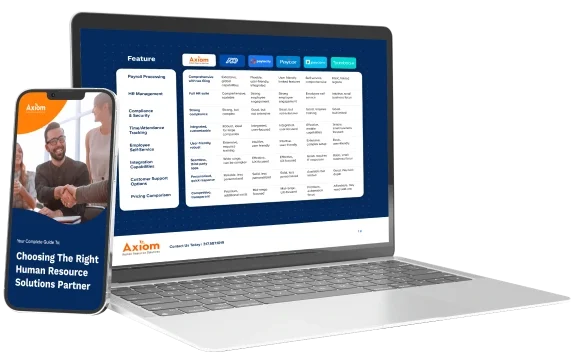
Real-Time HR is a series consisting of actual questions we’ve been asked and the expert answers provided by skilled HR professionals. We share them on our blog to give our readers insight into trending HR topics.
Question:
An employee in a job that regularly requires lifting 50 pounds now says they can only regularly lift 25 because of an off-the-job injury. Can we terminate?
Answer from Kate, SHRM-CP:
Possibly, but proceed with caution. The Americans with Disabilities Act (ADA) requires employers that have 15 or more employees to provide accommodations to employees to enable them to perform the essential functions of their job unless doing so would create an undue hardship or create a direct threat.
First, make sure that regularly lifting 50 pounds is actually an essential job function. Generally, an essential function of a job is a fundamental duty of the position. If the job can be done without regularly having to lift 50 pounds, then regularly lifting that weight isn’t considered an essential function, and you can’t terminate the employee because they are unable lift that amount.
Second, and if regularly lifting 50 pounds is an essential function, you are required to engage in the interactive process with the employee to determine if a reasonable accommodation would enable them to perform that task. Note that providing an accommodation doesn’t necessarily mean that they have to be able to personally lift 50 pounds. It could mean enabling them to move the 50 pounds from point A to point B without personally lifting it—with the use of a device of some kind, for example. Other potential accommodations include reassignment to an open position that the employee’s qualified for or, if the lifting limit is temporary, a leave of absence.
If there’s no accommodation that would enable them to perform the essential function without causing a direct threat, or if the only effective accommodation would create an undue hardship for you, then you can move on to termination. However, undue hardship is a high bar to meet and should be considered thoroughly before determination.
You can learn more about accommodations on the platform by searching “the Americans with Disabilities Act.”
Kate has had several years of experience working in customer service and quickly moved into HR. She graduated from the University of Oregon with a Bachelor of Science in Psychology. In her free time, Kate loves to travel and swim.
Do you have an HR-related question? Send it to us via our online contact form and we’ll have an HR expert give a detailed answer to help solve your issue.
